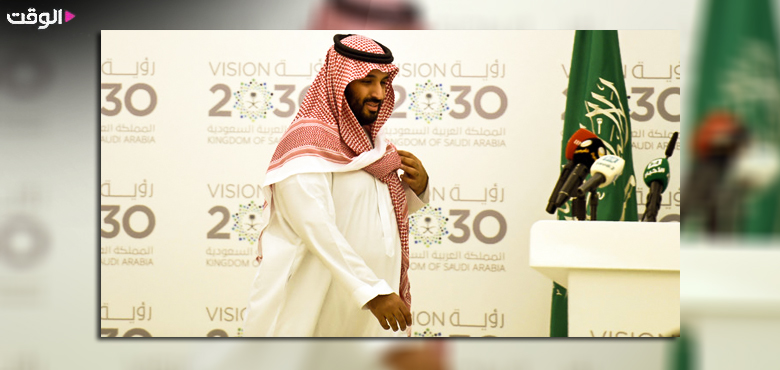Alwaght- After dismissal of Mohammad bin Nayef in 2015, Mohammad bin Salman rose to power as crown prince of Saudi Arabia. The man unveiled Saudi Vision 2030 a year later. The vision consists of measures for cultural, economic, and social reforms. Behind this roadmap, Prince Mohammed essentially sought to pose as a progressive, different, and open-minded in-the-waiting king in order to attract the younger generation and women to present a moderate picture of the kingdom both at home and abroad.
What is important in the Vision 2030 document is bin Salman's focus on attracting foreign investment, diversifying the economy, and creating tourism opportunities by setting the stage for major sporting and cultural events so that the country can gradually cut its dependence on oil. Bin Salman gradually began his reform measures, including the lifting of the ban on women driving and cinemas, the admission of women to sports clubs, and the increase of leisure centers and secular tourism in Saudi Arabia. Also under the influence of these reforms, for the first time a woman was named as the country's ambassador to the US.
Despite these measures, Saudi Arabia's actions like invading Yemen, financing and arming terrorism in the region, eliminating political rivals, suppressing and imprisoning domestic dissidents, cracking down on Shiite citizens and even executing them, and ultimately killing critical Saudi journalist Jamal Khashgeji in his country's embassy in Istanbul in October 2018 demonstrated to the world a much more black and abusive image of Saudi Arabia and its crown prince.
Assassination of the vocal critic of bin Salman prompted calls by rights advocacy groups to take anti-Saudi stances and invite for boycott of the Arab monarchy. Despite world pressures, Prince Mohammed as the key defendant got away with the murder without trial. Gradually, Western countries restored normal ties with Riyadh.
In such circumstances, bin Salman, in order to improve his tarnished image and change the world view of him, took various actions. Arranging festivals and purchasing Newcastle United football club, the Saudi ruler tried to make a brand of himself in sports, culture, and tourism sectors.
He also arranged political and economic events. In October 2019, the "Davos of desert" economic conference was held in Riyadh with the participation of representatives from more than 30 countries. The Saudi officials aimed to introduce Saudi Arabia as a dynamic economy and attractive for foreign investment. In 2020, the country hosted G20 summit.
In sports, although bin Salman's Manchester United buyout bid went nowhere, he bought for $409 million Newcastle United. The kingdom is currently hosting F1 Grand Prix competitions. It spent around $900 million over the course of 10 years to secure the right of hosting the international automobile races.
New York Times in a report published earlier this month wrote that the Saudi well-funded huge investments in football and golf are "sportswashing" efforts despite increase in crackdown in the past years. The rights observers, wrote NYT, are severely against allowing Saudi Arabia hosting sports events since this legitimizes a suppressive regime. Not long after Khashoggi killing, many foreign investors have already activated their investments in the kingdom as they arrived to join the F1 events.
In the cultural sector, Riyadh invites male and female singers from the Arab and Western worlds to perform in the country. The Saudis plan to invest $64 billion in the film industry. In recent days, they hosted the first edition of the International Red Sea Film Festival, in which 100 films from foreign countries were presented. The Guardian newspaper reported, citing critics, that Persian Gulf Arab "regime is using glamour of show business to distract attention from rights abuses within the country and beyond."
Despite the start of social and cultural reforms, no steps have been taken towards political reforms yet, leading to analysts suggesting that the reforms would be ineffective in the long-run. From another angle, the existence of a conservative and religious circle opposing bin Salman's cultural and social measures can work as a potential for severe protests and opposition in the country prospectively.
In addition, despite bin Salman's pro-reform efforts, the country has not been able to achieve the image it envisioned due to its continued human rights abuses and repression of political opposition. The obvious crimes of this country in Yemen invasion that led to a major humanitarian crisis, along with repressive measures at home and abroad in dealing with human rights activists, critics and Shiites, as well as not preparing the necessary grounds for reforms including not persuading the public can prove harmful to bin Salman himself and other leaders in the first place.
Abdullah al-Ouda, the head of National Assembly Party (NASS), a Saudi opposition party founded outside the country last year by a group of dissenters, posted images of Washington in a Twitter post saying: "Today we observed people who passed the streets and shouted we deserve democracy not Mr saw," referring to bin Salman's role in assassination of Khashoggi who was killed and dismembered by a death squad using a saw.



























